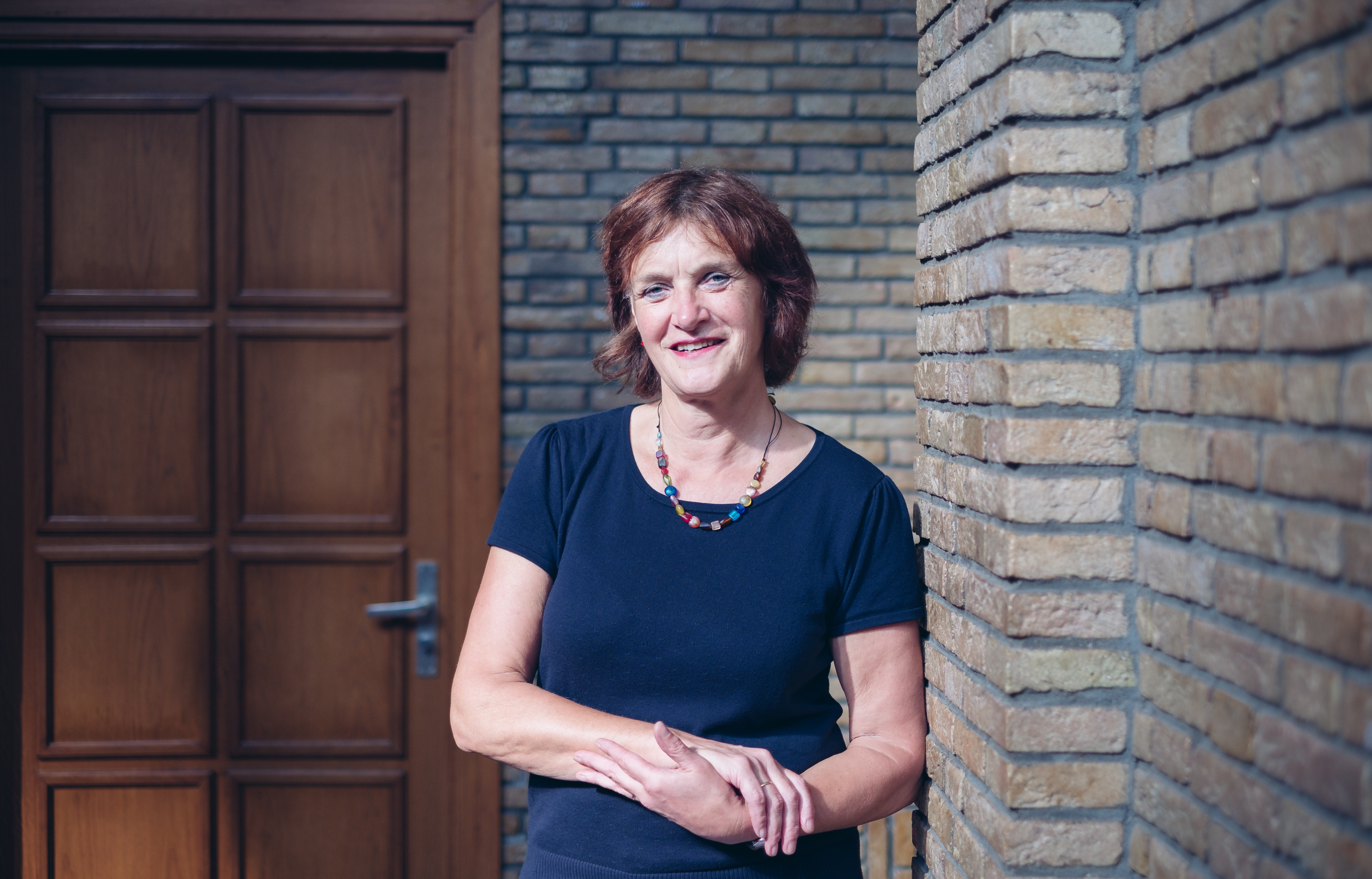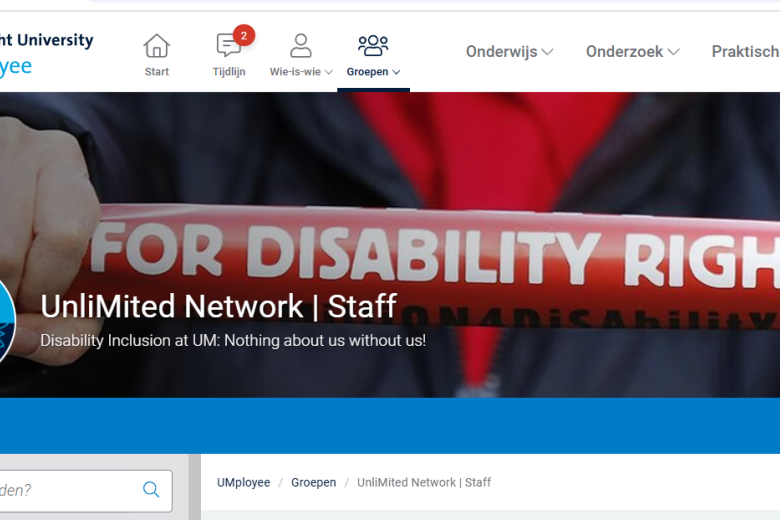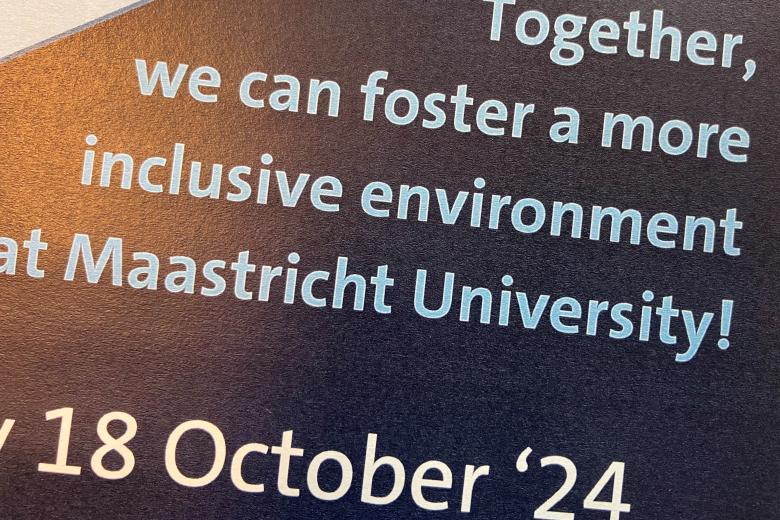Afscheid van 'PGO-ambasadrice' Jeannette Hommes
Jeannette Hommes: problem-based learning champion and 'DNA of SBE' waves farewell
What can an academic’s job title, or her CV, tell us? Consider, for example, scholar and educator Jeannette Hommes, who is celebrated this week in an Afscheidssymposium as she retires (with what she describes as a mixture of anticipation and “mourning”) after 25 years at the School of Business and Economics.
Her job title at SBE – Educational Developer – is brief and modest, as is so often is the case with colleagues whose contributions are the most far-reaching. A look at her CV fills out the picture a little more. We see the undergraduate study in social psychology that gave her an early grounding in thoughtful observation. The prestigious teaching prizes. The membership of committees, from exam taskforces to faculty internationalisation, and a key role in the introduction at SBE of the national higher education teaching qualification, the BKO. Her leadership, for so many years, of the faculty’s “training in innovative formats of teaching and learning” – yes, the famed Problem-Based Learning. And, relatedly, her work as a visiting PBL expert at universities everywhere from France, the UK, Germany, Spain and Russia to Peru, Brazil, Mozambique and Surinam.

Now Hommes is undertaking a new life journey, waving farewell to an intentionally “horizontal, not vertical” career full of her preferred “work at the micro level”. It is a career, according to outgoing dean Philip Vergauwen, that has made Hommes “the very DNA of SBE”.
She began thinking of retiring from what she describes as a “very hard-working, very dynamic, innovative school” a few years ago. “My husband had already stopped working and was asking, ‘Can’t you work part time?’ But because I’m so involved in so many activities, I thought if I opted for three days a week, I might end up being paid for three, but working five. The only other option was to stop… totally. I always imagine I will reach the age of 100; but whatever the case, I still want to do more things in life. I have very broad interests.” She gave a full year’s notice, she says, not only to ensure out a proper handover to her successor Inken Gast, but “also, emotionally, start to say goodbye”.
“I really will miss the school, my colleagues, the students, the dynamics. This morning I talked to Wim [Gijselaers, department chair, Educational Research and Development] and he asked how I was. Ah, I’m doing well, I said. I’m happy with how it has gone. It’s a kind of mourning process to leave and to say goodbye. But the work is in good hands.”
The mysteries of PBL
Much of her work at SBE has centred on helping lecturers to teach by initiating them into the mysteries of PBL – which can, she recounts, seem more mysterious to some than others. However, there has been much more to her job than that. Jarrod Ormiston, assistant professor of entrepreneurship and one of the latest SBE academics to have benefitted from her training, observes that she was “fantastic at welcoming new staff to the school. Beyond her expertise in sharing the philosophy of PBL, she took it upon herself to solve any issues that newcomers were facing.”
So who taught Hommes, a teacher of teachers, to teach?
“I think I discovered it myself! Well, perhaps that’s not true. Early on, I was asked to be a student assistant: they said, ‘During the training you were the one who was a very good observer and gave good feedback, so we would like you to help as a teacher’. By doing it, I found out that I liked to do it.”
“What I hear from many colleagues is that they had previously never had support in their teaching. People have always asked me, ‘What do you do?’ And I say, I support my colleagues in their teaching activities. That’s really how I perceive my role.”
During her time at SBE, Hommes - whom Gijselaers describes as “a very loyal, passionate colleague who takes great care of the people she works with” - has seen it go through many changes. From an economics faculty that was nearly exclusively Dutch (from staff to language of instruction), it has become an international community in all senses. Many changes, she notes, have been good, even if some – including a sharp rise in enrolments and “more assertive”, “more risk avoidant” students with shorter attention spans – have brought challenges.
The three Cs and the S
Perhaps one of the more noteworthy shifts Hommes has seen is a move toward parity of esteem for teaching and research. This was not, she recall, always the case.
“We have a lovely tradition of giving out prizes at Christmas for education and for research. Originally, however, the money for the research prize was higher than the teaching prize. So I said to the dean, this is unacceptable. If you want teaching to be valued here, then at least the amount of prize money should be the same,” she recalls. Hommes got her way. Today, she notes, “we really have some very good teachers here. For example, the junior lecturers: they are really fabulous.”
Asked to point to the most important constant at the faculty, she points without hesitation to PBL, “our didactical principle”.
“It’s the three Cs and the S. Constructivism: acquiring your own knowledge, building your own knowledge network. Cooperative: working together with others. Contextual: always relevant context. The S is self-direction: your own responsibility in the learning process. That’s why I always encourage tutors to lead students to discover things for themselves. Giving them examples; playing devil’s advocate. Of course tutors tend to want to give the answer, but I say, no, it’s very important to use your expertise the right way. You know the answer, but they have to discover it.”
"I am a believer, but I'm not a missionary"
Although Hommes has carried the “paradigm change” of the PBL message far and wide, she says, “I’m not a missionary. However, I am a believer, and it’s really a conviction that I’ve tried to share in my time here. But for some new colleagues – say, German or Belgian – it’s really a shock. They wonder, ‘Where’s the place for my expertise?’ And I say, well, your expertise is there, but in a different way. Or they may argue, ‘Students are lazy, they will never do this kind of preparation’. But they end up completely surprised to be proved wrong. They even admit, especially with master’s courses and third-year bachelor’s courses, that they learn from their students.”
There is something about PBL’s roots in the 1970s, she agrees, that “really fits the Dutch culture. But my experience is that it can work around the world. Academics project their initial resistance onto their students, and there’s no need. Problem-Based Learning really is possible everywhere, and in every discipline.”
Looking back on her time at SBE, what thing is Hommes proudest of that no CV could ever tell us? “That I always woke up enthusiastic about the prospect of going to work, and that I always learned something every day. When people ask, ‘How could you stay that long?’, that’s what I think of. That I stayed open to learning new things; that I was able to support so many colleagues.”
“You don’t ever need to look at what a CV says, in the case of someone like Jeannette,” advises a passing Philip Vergauwen, with a broad smile. “With no disrespect to anyone else, you hardly ever see people that committed, that engaged, with such professional expertise, human warmth, enthusiasm, drive, commitment. She’s the very DNA of the school: it’s that simple.”
Lees ook
-
SBE-onderzoekers betrokken bij NWO-onderzoek naar de rol van de pensioensector in de duurzaamheidstransitie
SBE-hoogleraren Lisa Brüggen en Rob Bauer maken deel uit van een nationaal, door NWO gefinancierd initiatief dat onderzoekt hoe Nederlandse pensioenfondsen de overgang naar een duurzame samenleving kunnen versnellen. Het project van € 750.000 heeft als doel om pensioenbeleggingen af te stemmen op de...

-

-
